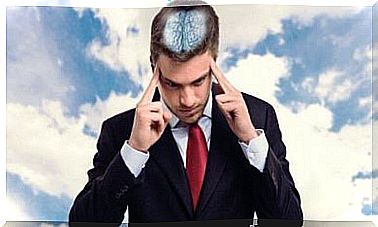Improve Your Concentration With These Simple Tricks

Do you have problems with and need to improve your concentration? Does it feel like your memory is failing you? Do you constantly feel confused and groggy? When you talk to someone, do you feel that you do not really hear what the person is saying? When you watch TV or read something, does it feel like you do not really know what is going on?
Concentration and memory difficulties can be a big problem. Not only for work or study, but also for daily life. The consequences of these problems can go much further, as it affects your self-esteem, personal relationships and even emotional stability.
There is a big difference between having a bad day and feeling a constant inability to keep your attention focused. Since this is not something that should scare or upset you, we will call it by its real name. This inability to include confusion and forgetfulness, lack of concentration and mental clarity is called brain fog.
Cerebral palsy is an anomaly that is not recognized as a disease, but is referred to as an internationally accepted mental state. Unfortunately, the occurrence of brain fog is very common, although this does not make it ” normal”.
Brain fog refers to a problem that goes beyond concentration problems. When you have brain fog, you may feel unfocused, confused and find it difficult to think. With brain fog, your brain sends an important signal that there is an imbalance that needs to be addressed.
In fact, what may appear to be a mental or psychological problem may in fact be something else. In fact, brain fog can be a product of your lifestyle. Many more factors than you think in your lifestyle can cause brain fog. Your diet is one of them. The fog can also be a side effect of a mental condition or some medication.
The good news is that brain fog can be avoided and is treatable once the factors that caused it have been identified. Sometimes the solution is as simple as a healthier lifestyle. You can thus improve your concentration with relatively simple means.

In many cases, brain fog is due to conditions that are directly linked to our health. In fact, the medication of a set of diseases can cause or help the onset of brain fog. Certain supplements that are supposed to increase the quality of life can also cause the condition.
Brain fog can also occur as a result of an unhealthy lifestyle. Especially when it comes to poor diet. As we will see later. Nutrition is a serious subject that goes beyond our physical health. It is a crucial factor in our mental and emotional health. Next, we will analyze how we dissolve brain fog to improve your concentration.
When you have an unhealthy diet, the risk of suffering from brain fog increases. But what is a bad diet and what constitutes a good diet? The answer is simple, but it is very difficult to process and accept. In fact, people do not want to hear it. Diet is essential for improving your concentration.
To begin with, we must make it clear that there is a difference between eating and consuming edible products. The difference is that food provides necessary and beneficial nutrients. Edible products lift the feeling of thirst and hunger, but really offer nothing of what our body really needs.
This is why you need to eat less when you are on a healthy diet. And when you have a diet that is not based on nutritious food, you need to eat little and often. This is because the body requires the nutrients that are lacking. This is why you should reduce to the utmost amount of useless edible products and replace them with real food.
Problems with concentration and brain fog can also be due to malnutrition. In fact, these deficiencies can occur even if you have a healthy diet. Either because you do not consume enough food, or because it is not absorbed properly. To succeed in improving your concentration, you should observe the list below.
The main shortcomings that can cause problems with concentration are:
- Lack of vitamin B12. Vitamin B 12 deficiency should not be underestimated as it can cause a wide range of mental and neurological disorders. Digestive problems and also medications that regulate stomach acid can increase the risk of this deficiency.
- Vitamin D deficiency Vitamin D helps to elevate one’s mood, dispel brain fog and depression, improve memory and improve one’s problem-solving abilities.
- Lack of essential fatty acid omega 3. Essential fatty acids are found in high concentrations in the brain. They are vital for our memory and brain health and function. Of all the omega 3 fatty acids, docosahexaenoic acid (DHA) is the most beneficial for the brain. It is an important structural component in brain cells, especially in the cells of the cortex. This is an area of the brain that is associated with memory, language, abstraction, creativity, judgment, emotion and attention.
Some supplements could help dispel brain fog and improve our concentration. But you must always be very careful with these supplements as they are not always as helpful as they seem. Nootropics, for example, are substances that can make you more focused, motivated, positive and productive. But after all, they are not as useful nor are they as harmless as they seem.
Brain fog can be caused by a lack of quality sleep. After all, sleep is fundamental to brain function, both in the long run and in the short run. When you sleep, a kind of brain cleansing occurs. This allows your memory to enhance your memory. In addition, the brain creates new cells during sleep. These in a way compensate for all the cells you lose during the day.

A bad night can affect your memory, concentration, coordination, mood, judgment and ability to deal with stress during the following day. In addition, some experts say that losing a night’s sleep affects your mental ability in the same way as if you had been drunk.
Stress is one of the characteristics of our time, and chronic stress is one of their main servants. Being stressed is incorrectly seen as a synonym for being productive, popular and successful. However, stress increases the risk of suffering from more serious illnesses. These include cancer and several dreaded brain diseases, such as Alzheimer’s.
Chronic stress causes anxiety, depression, poor decision making, insomnia and memory loss. Too much cortisol, the body’s stress hormone, induces an excess of free radicals. These substances damage the cell membranes in the brain and cause them to lose their normal function and die. Cortisol also interferes with the renewal of brain cells.
All medications have their risks. Brain fog is one of the most common side effects reported for both prescription and over-the-counter medications.
For example, it is known that cholesterol-lowering medications and prescription sleep medications can cause memory loss. Drugs known as anticholinergics work by blocking the effect of acetylcholine. This is a chemical in the brain that is responsible for memory and learning. The typical side effects of these medications are brain fog, forgetfulness and lack of concentration.
Furthermore, many over-the-counter medications block acetylcholine. This applies to allergy medicine, medicine for acid reflux, painkillers and insomnia. It is then important to analyze whether the side effects compensate for the possible benefits that the treatment brings.
Some health problems can create problems with concentration and mental clarity. In some cases, it is the treatment of a disease that causes the problem. This is the case with, for example, cancer patients who are exposed to chemotherapy.
A common side effect of chemotherapy is a certain type of brain fog associated with this treatment. The official position of the American Cancer Society is that brain fog is caused by chemotherapy in combination with the disease itself, treatments, sleep problems, hormonal changes, depression and stress.
When researchers analyzed the cerebral activity of these patients, before and after chemotherapy, they found that the treatment caused noticeable changes in brain function. This indicates that chemotherapy plays a role in reducing mental clarity.
Here are some health conditions that have been associated with brain fog:
- Fibromyalgia
- Chronic fatigue syndrome
- Anxiety
- Depression
- Candida ( Candida albicans )
- Diabetes
- Heavy metal poisoning
- Hepatitis C
- Hormonal imbalance
- Hypoglycemia
- Functional bowel problems (IBS)
- Lyme disease
- Menopause
- MS – multiple sclerosis
- Progressive neurological disease
- Rheumatism
- Seasonal allergies
- Drug abuse
There is no definitive solution on how to dissolve brain fog and succeed in improving your concentration. Each individual must seek their own personal solution. To first and foremost identify the factor or factors that give weight to the fog.
Most people will have to correct their eating habits while finding ways to control their stress and improve their sleeping habits. It will also be necessary to review their health and find solutions. In fact, brain fog can be a symptom of an undiagnosed health problem.

The basic guidelines we can give you to dissolve brain fog and improve your concentration are:
- Eat well and maintain a balanced diet. Avoid refined sugar, refined flour, saturated and caffeine. Eat healthy fats and carbohydrates of good quality.
- Maintain fluid balance. Mild dehydration can also cause several brain problems. Drink water and consume foods that are rich in fluids. Avoid sweetened beverages or beverages with artificial sweeteners as well as caffeinated beverages.
- Get healthy habits when it comes to a good night’s sleep both in terms of quality and quantity.
- Practice meditation and relaxation techniques as well as exercise. Especially activities you can perform outdoors. Exercise helps regulate and prevent your stress levels. In addition, stress management is another step in the direction of good sleep habits.
- Examine the medicine you are taking to see if it can be ruled out or adjusted to avoid brain fog.
- Do a health check to see if you have any disease is malnutrition that may be the cause of your concentration and memory problems.
- Give your brain a break. Experts recommend that you fragment your day into 90-minute sections to maintain your natural energy levels and preserve your mental clarity. The break consists of collecting all the thoughts that go through your mind for a 30 second period each time you feel distracted.
- Turn off all electronic devices that may interfere with your tasks, especially your messaging features. The mere fact that you know you could receive a text prevents you from reaching your best level of concentration.
Be proactive when it comes to adopting a healthy lifestyle, both for your body and your mind. Do not leave room for excuses or accusations – make sure to improve your concentration today. No one will worry about your brain except you. And no one will enjoy its best form as much as you.








